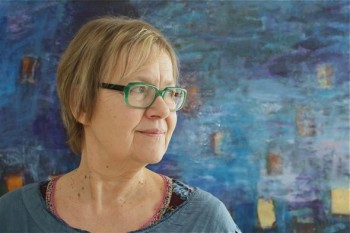Author: Michel Ekman
Peter Sandström: Transparente blanche
30 October 2014 | Mini reviews, Reviews
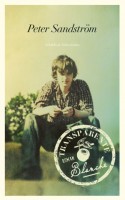 Transparente blanche
Transparente blanche
Helsinki: Schildts & Söderströms, 2014. 226 pp.
ISBN 978-951-523-461-2
€ 28, hardback
Finnish translation:
Valkea kuulas
Suomentanut [Translated by] Outi Menna
Helsinki: Schildts & Söderströms, 2014
ISBN 978-951-523-415-5
Peter Sandström debuted in 1998. His sixth book, the novel Transparente blanche [White transparent: apple variety], is about a middle-aged man who returns to the place of his upbringing and his elderly mother to help her with a strange task she has been given. He is confronted with memories of crucial experiences of his youth – the early death of his father, and his first love – experiences which, the reader understands, guided his life and made him the alienated person he is. The novel also depicts in an unusually sensitive and penetrating way the relationship between a grown man and his mother. However, plot is never the focus of Sandström’s books. His interest lies in using a specific environment and precise and poetic language to depict the vaguest of existential experiences: transience, mortality, changes in the perception of one’s body and in things, the unreliability of memories, the enigma of other people, all that it means to be human, impermanent and thrown into the stream of time.
Translated by David McDuff
That which simply is
24 October 2013 | Non-fiction, Reviews
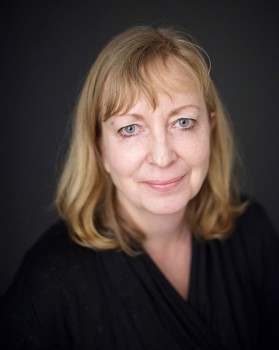
Henrika Ringbom. Photo: Curt Richter
Henrika Ringbom
Öar i ett hav som strömmar
[Islands in a flowing sea]
Helsingfors: Schildts & Söderströms, 2013. 78 p.
ISBN 978-951-52-3218-2
€21, paperback
Henrika Ringbom’s new collection of poems is emotionally touching and formally sophisticated – something only the very best poetry can manage. Ringbom is an experienced author whose output since her debut in 1988 has included five collections of poetry and two novels; even so, it feels as if she has taken another step forward in her writing with this latest volume.
The focal point is the loss of a beloved mother. The title, which translates as ‘Islands in a flowing sea’, emphasises the fleeting nature of all life, and the book radiates sorrow more than anything else. There has always been an intellectual, distancing quality to Ringbom’s writing. That stands her in good stead here, preventing the book from becoming too private and introverted, despite its highly personal themes. More…
Speaking with silence
26 September 2013 | Reviews
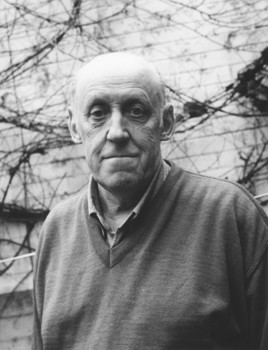
Bo Carpelan. Photo: Charlotta Boucht / Schildts & Söderströms
Bo Carpelan
Mot natten
[Towards the night. Poems 2010]
Helsinki: Schildts & Söderströms, 2013. 69 p.
ISBN 978-951-52-32-20-5
€21, paperback
‘Don’t change, grow deeper ,’ wrote Bo Carpelan: over the years he broadened his poetic range and his personal idiom evolved, but it happened organically, without sudden upheavals of style or idea.
Mot natten (‘Towards the night’) is Carpelan’s last collection of poems. This is underlined by the book’s subtitle, Poems 2010. By then Carpelan (1926–2011) was already marked by the illness that took his life in early 2011. It doesn’t show in the quality of the poems, but knowing it may make it harder for the reader to approach them with unclouded eyes. When a great poet concludes his work one wants to seek a synthesis or a concluding message, and that may encumber one’s reading. So is there such a message? In some ways there is, but Carpelan was not a man of pointed formulations. His ideals emerged without much fuss. More…
Becoming Finland
23 May 2013 | Reviews
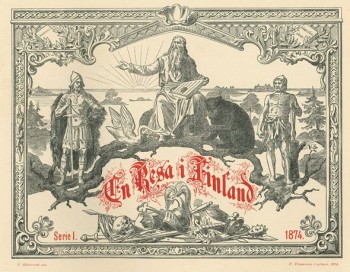
Imaginary heroes: the title page of En resa i Finland. Illustration by C.E. Sjöstrand (1828–1906)
Zacharias Topelius
En resa i Finland
[A journey in Finland (1873)]
Helsinki: Svenska litteratursällskapet i Finland, 2013. 173 p., ill.
Utgivare [Editor]: Katarina Pihlflyckt
ISBN 978-951-583-260-3
€38, hardback
(Stockholm: Atlantis förlag, 2013. ISBN 978-91-7353-616-5)
The birth of Finland as a country came as a surprise to those who lived there.
It was created by Napoleon and Alexander I, becoming a reality following Russia’s victory over Sweden in the so called Finnish War. In 1809 Alexander exalted Finland as ‘a nation among nations’, however the new nation still needed to feel like a nation. The Russian rulers supported gentle and non-political nationalism in Finland, in the hope that it would mentally distance the country from Sweden. In this tranquillity, the sense of community they had envisioned grew in Finland.
For this, there were three key factors, all of which stemmed from the 1830s. Elias Lönnrot published the Kalevala, the national epic, proving that Finnish mythology and culture did indeed exist. The poet J.L. Runeberg (who would later become known as the national poet) gave Finland an appearance that was an ideology. He depicted a poor, pious and simple people, a harsh and beautiful wilderness, and with his poems he described the Finnish War, that Finland had lost, as a heroic battle of the people, fought for Finnish values. More…
Johanna Holmström: Asfältsänglar [Asphalt angels]
21 March 2013 | Mini reviews, Reviews
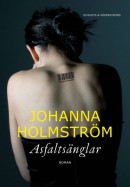 Asfältsänglar
Asfältsänglar
[Asphalt angels]
Helsinki: Schildts & Söderströms, 2012. 294p.
ISBN 978-951-52-3120-8
€29.90, hardback
Finnish translation:
Itämaa
Helsinki: Otava, 2012. 333 p.
Suom. [Translated by] Tuula Kojo
ISBN 978-951-1-26841-3
€29.90, hardback
The immigrant novel has not played a significant role in contemporary Finnish literature; since the wave of Russian refugees in the early 19th century, there have been few immigrants to Finland. In her short story collection Camera Obscura (2009) Johanna Holmström (born 1981) managed to combine realism and fantasy in a fascinating way; her new novel, Asfaltsänglar, is the directly yet eloquently told story of two young immigrant sisters. Leila, bullied at school, is becoming a drop-out, while Samira, who has tried to live according to western norms, lies unconscious after an unexplained accident. Their Finnish mother is a fanatical convert to Islam and their father comes from the Maghreb region. The novel confronts claustrophobic Arabic family culture and western ideals of freedom, taken so far that people completely lose any sense of responsibility for one another, with the adults’ betrayal of their children playing a key role. Holmström goes to great lengths to give a balanced portrayal of both cultures and show why her characters act as they do, even when the results are tragic.
Translated by Claire Dickenson
Jörn Donner: Mammuten [The mammoth]
14 February 2013 | Mini reviews, Reviews
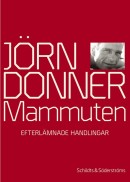 Mammuten. Efterlämnade handlingar
Mammuten. Efterlämnade handlingar
[The mammoth. Leftover business]
Helsinki: Schildts & Söderströms, 2013. 1,128 p., ill.
ISBN 978-951-152-311-54
€37.90, hardback
Finnish translation:
Mammutti. Jälkeenjääneet tekoset
Helsinki: Otava, 2013. 1,087 p., ill.
Suom. [Translated by] Kari Koski
ISBN 978-951-126-311-1
€69,90, hardback
Born in 1933 to a Swedish-speaking family in Helsinki, Jörn Donner, a prominent figure in Finland and Sweden for decades, has published some sixty books. His novel Far och son (‘Father and son’) won him the Finlandia Prize for Fiction in 1985. He has directed and produced films; as a producer he received an Academy Award for Ingmar Bergman’s film Fanny and Alexander. Donner has served two terms in the Finnish Parliament and one in the European Parliament, and represented or supported five different political parties, from the Moscow-loyal Left to the right-wing National Coalition party. Donner’s life has often been the subject of television programmes and he has never passed up the opportunity for more or less well-considered provocations. When he publishes his autobiography at the age of eighty, expectations are high, but Mammuten does not live up to them. It is a sloppy collage of old newspaper articles and introverted diary entries; what emerges is the picture of a man who is disappointed in almost everything he has achieved in life and who sees most of his human relationships as failures. Strangely enough, of the principles that have guided his restless activity and the goals he has striven for in the longer term, Donner writes almost nothing.
Translated by David McDuff
Pertti Lassila: Metsän autuus. Luonto suomalaisessa kirjallisuudessa 1700–1950 [Bliss of the forest. Nature in Finnish literature 1700–1950]
21 December 2012 | Mini reviews, Reviews
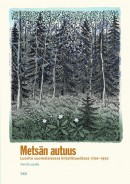 Metsän autuus. Luonto suomalaisessa kirjallisuudessa 1700–1950
Metsän autuus. Luonto suomalaisessa kirjallisuudessa 1700–1950
[Bliss of the forest. Nature in Finnish literature 1700–1950]
Helsinki: Suomalaisen Kirjallisuuden Seura (The Finnish Literature Society), 2011, 260 p.
ISBN 978-952-222-322-7
€35, paperback
Culture and art are relatively recent phenomena in Finland, but the forests, lakes and swamps have been here forever: national introspection has therefore always revolved around different ways of interpreting nature. National poet J.L. Runeberg (died 1877) romanticised the wilderness of the north and its starving inhabitants; pragmatic national philosopher J.V. Snellman (died 1881) rejoiced in the advances of continental culture in the farming regions of southwest Finland. Attempts to combine these two stances characterised the building of political and cultural ideas. Literary researcher Pertti Lassila follows the theme of nature through Finnish- and Swedish-language literature, including almost all major works up until the 20th century and some of the most important ones from the last century. His book is, at the same time, a description of the flow of ideas from the centre to the periphery, from the French classicist Carl Philip Creutz, author of hedonistic pastoral poetry, to Joel Lehtonen, writer of modern epics, whose endless pessimism was a largely constructed attempt to shape the split between nature and the alienated citizen of the 20th century; how successful he was is debatable. Nature remains a major theme in Finnish literature.
Translated by Claire Dickenson
Fredrik Lång: Av vad är lycka. En Krösusroman [From what is happiness. A Croesus novel]
4 December 2012 | Mini reviews, Reviews
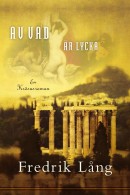 Av vad är lycka. En Krösusroman
Av vad är lycka. En Krösusroman
[From what is happiness. A Croesus novel]
Helsingfors: Schildts & Söderströms, 2012. 221 p.
ISBN 978-951-523-002-7
€20.25, hardback
What is happiness? According to the Western thought, happiness is to have, to own, and whenever possible to get even more – it is interesting to find out what our forefathers thought about the question before it was answered. This is precisely what Fredrik Lång does in this novel, the best since the ancient-inspired Mitt liv som Pythagoras (‘My life as Pythagoras’, 2005). Lång describes the Lydian king Kroisos, the richest man of his day, and his attempt to overthrow the wise Greek Solon’s idea that moderation and a contemplative lifestyle lead to happiness. Even if the driving force behind this novel is philosophical, it is brought alive with graphic depictions, extravagant battlefield scenes, intrigue and heartrending romance. Lång’s narrative is often ironic or comical, yet it still manages to emphasise the hard lives of its characters and the complete and utter inequality between master and slave, rich and poor, man and woman. Despite the immersion in the past, it is his own time Lång writes about, sometimes via shameless anachronism, sometimes subtle hints.
Translated by Claire Dickenson
Coolness and warmth
21 April 2011 | Reviews
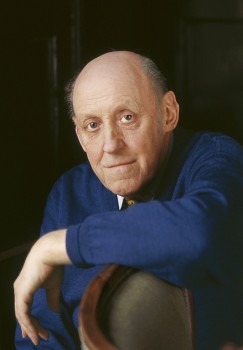
Bo Carpelan. Photo: Irmeli Jung
The coolness on the mountain
streams of water, black forests
in the west a growing light
foreboding sleep
These lines are from Gramina, the twenty-second and last collection of verse by the Finland-Swedish poet Bo Carpelan, which appeared last summer.
The short poem captures much of what was typical of Carpelan’s poetic style: a visually sharp and objective image which juxtaposes the world we see with a sense of something different, undefined. Time the unstoppable, which changes everything, was his central theme, and it also figures here.
Carpelan (1926–2011) made his debut in 1946 and was hailed early on as a renewer of the modernist tradition that in Finland began in the early 20th century with Edith Södergran (1892–1923) and Elmer Diktonius (1896–1961). He combined the Finnish-Swedish heritage of reflective nature poetry with imagistic stimuli from Swedish- and English-language modernism. More…

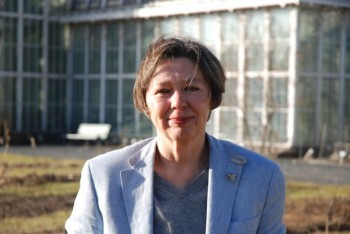
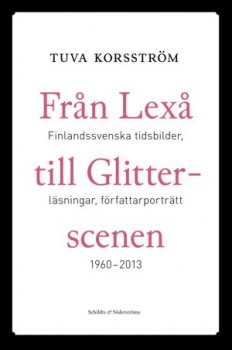 Tuva Korsström
Tuva Korsström